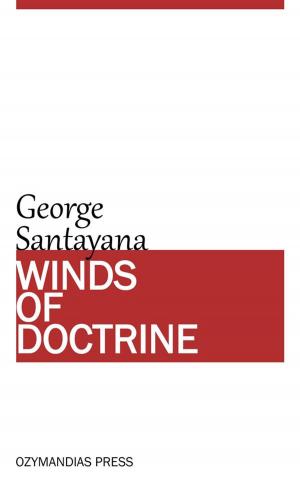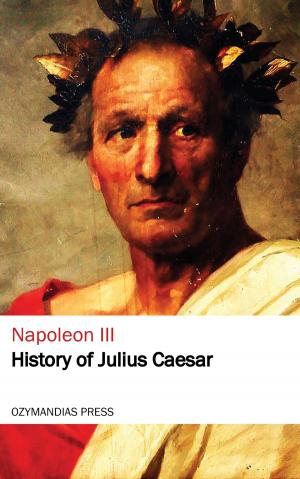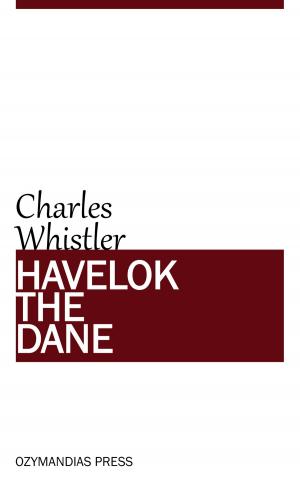| Author: | Ludovico di Varthema | ISBN: | 9781531285920 |
| Publisher: | Ozymandias Press | Publication: | June 27, 2016 |
| Imprint: | Language: | English |
| Author: | Ludovico di Varthema |
| ISBN: | 9781531285920 |
| Publisher: | Ozymandias Press |
| Publication: | June 27, 2016 |
| Imprint: | |
| Language: | English |
Who was Ludovico di Varthema? Unfortunately, scarcely any record of him is forthcoming except what he tells us himself. I have searched every available repository of such information, to learn something of his antecedents, and have searched in vain. Zedler finds no place for him in his Universal Lexicon; our own Biographical Collections pass him over and all that the French have to say is this:—
“Varlomanas, gentilhomme Bolonais, et patrice Romain, fut un voyageur celebre clans le xvie siecle. West presque inconnu dans le notre, parce que l’abbe Prevost, et ceux qui ont ecrit l’histoire des voyages, ont neglige de parler du sien, quoiqu’il soit un des plus importants pour l’histoire de la geographie, et pour Thistoire en general.” I had hoped to glean some stray notices of him in the writings of his own countrymen but they are as barren of what we wish to know as the rest. Zurla does not even mention him in his Dissertation on the most illustrious Italian travelers and Fantuzzi, the only Italian historian who devotes more than a few lines to him, begins his article on “Lodovico Bartema” with an admission which I have been obliged to imitate, and ends it by erroneously stating that our author’s Itinerary was first published at Venice, and by hazarding a doubt respecting his return to Italy—a fact which is plainly stated at the conclusion of his narrative. Fantuzzi’s notice is as follows:—"Of this person, we know nothing beyond what the Co. Valerio Zani has written in the Preface to the Genio Vagante, torn. i. p. 32, viz., that Lodovico Bartema, a Bolognese by birth, flourished in the sixteenth century,—that he left Bologna for Venice, from whence he crossed over into Asia, and arrived first at Alexandria,” etc. “This is all we learn from the Co. Valerio Zani in the above named Preface, subsequent to which we possess no information about Lodovico Bartema hence, we do not know whether he returned to Italy, or where he died, except that, inasmuch as his Itinerary was printed for the first time in Venice, we are led to “believe that he did return thither for it is not easy to suppose that he sent his manuscripts from Portugal to be printed in Italy, which they appear to have been during his lifetime.”
This is very unsatisfactory, and the deficiency is not supplied by any incidental allusions in the author’s dedicatory epistle. Agnesina, the illustrious lady to whom he dedicates his Itinerary, was the fourth daughter of Federico di Montefeltro, Count and second Duke of Urbino, by his second wife Battista Sforza, and was married in 1474 to Fabrizio Colonna, Lord of Marino, Duke of Albi and Tagliacozza. Of the lady Agnesina, Dennistoun says: “She inherited the talents and literary tastes which had descended to her mother, and transmitted them to a still more gifted daughter, the illustrious Vittoria Colonna, Marchioness of Pescara.” Her brother, whose genius and acquirements are justly eulogized by Varthema, was Guidobaldo, who succeeded to the dukedom on the death of his father in 1482, and died on the 11th of April 1508. As he appears to have been living at the time the Dedication was written, it must have been prepared immediately after the author’s return to Italy...
Who was Ludovico di Varthema? Unfortunately, scarcely any record of him is forthcoming except what he tells us himself. I have searched every available repository of such information, to learn something of his antecedents, and have searched in vain. Zedler finds no place for him in his Universal Lexicon; our own Biographical Collections pass him over and all that the French have to say is this:—
“Varlomanas, gentilhomme Bolonais, et patrice Romain, fut un voyageur celebre clans le xvie siecle. West presque inconnu dans le notre, parce que l’abbe Prevost, et ceux qui ont ecrit l’histoire des voyages, ont neglige de parler du sien, quoiqu’il soit un des plus importants pour l’histoire de la geographie, et pour Thistoire en general.” I had hoped to glean some stray notices of him in the writings of his own countrymen but they are as barren of what we wish to know as the rest. Zurla does not even mention him in his Dissertation on the most illustrious Italian travelers and Fantuzzi, the only Italian historian who devotes more than a few lines to him, begins his article on “Lodovico Bartema” with an admission which I have been obliged to imitate, and ends it by erroneously stating that our author’s Itinerary was first published at Venice, and by hazarding a doubt respecting his return to Italy—a fact which is plainly stated at the conclusion of his narrative. Fantuzzi’s notice is as follows:—"Of this person, we know nothing beyond what the Co. Valerio Zani has written in the Preface to the Genio Vagante, torn. i. p. 32, viz., that Lodovico Bartema, a Bolognese by birth, flourished in the sixteenth century,—that he left Bologna for Venice, from whence he crossed over into Asia, and arrived first at Alexandria,” etc. “This is all we learn from the Co. Valerio Zani in the above named Preface, subsequent to which we possess no information about Lodovico Bartema hence, we do not know whether he returned to Italy, or where he died, except that, inasmuch as his Itinerary was printed for the first time in Venice, we are led to “believe that he did return thither for it is not easy to suppose that he sent his manuscripts from Portugal to be printed in Italy, which they appear to have been during his lifetime.”
This is very unsatisfactory, and the deficiency is not supplied by any incidental allusions in the author’s dedicatory epistle. Agnesina, the illustrious lady to whom he dedicates his Itinerary, was the fourth daughter of Federico di Montefeltro, Count and second Duke of Urbino, by his second wife Battista Sforza, and was married in 1474 to Fabrizio Colonna, Lord of Marino, Duke of Albi and Tagliacozza. Of the lady Agnesina, Dennistoun says: “She inherited the talents and literary tastes which had descended to her mother, and transmitted them to a still more gifted daughter, the illustrious Vittoria Colonna, Marchioness of Pescara.” Her brother, whose genius and acquirements are justly eulogized by Varthema, was Guidobaldo, who succeeded to the dukedom on the death of his father in 1482, and died on the 11th of April 1508. As he appears to have been living at the time the Dedication was written, it must have been prepared immediately after the author’s return to Italy...















